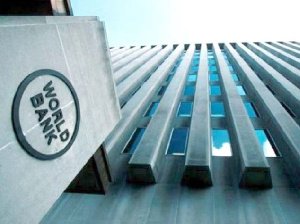The World Bank’s latest Ghana Economic Update indicates that while the country has made “steady progress” towards economic stabilization, significant liabilities in the cocoa and energy sectors could pose risks to Ghana’s “modest recovery.”
Released on Monday, July 22, the eighth edition of the report attributes the recent economic improvement to a firm monetary policy stance, comprehensive debt restructuring, and a series of structural reforms aimed at supporting long-term growth.
Despite this, the report points out that challenges such as financial sector stress and contingent liabilities in critical sectors like cocoa and energy could impact the economy’s stability.
Mr. Stefano Curto, Lead Economist for Ghana, Liberia, and Sierra Leone at the World Bank, noted that the macroeconomic situation has seen considerable improvement over the past year.
“Growth in 2023 was more resilient than projected, reaching 2.9 percent. Ghana has made commendable strides on fiscal consolidation,” Curto stated.
However, he emphasized that the sustainability of these efforts is contingent on enhancing the country’s tax revenue while minimizing the impact on growth and the vulnerable populations.
The report stresses the need for robust measures to enhance tax revenue mobilization and the full implementation of policies related to the ongoing $3 billion International Monetary Fund (IMF) loan-support program.
Mr. Curto recommended streamlining the complexities associated with personal income tax, Value Added Tax (VAT), excise duty, and corporate income tax, as well as rationalizing tax exemptions.
Economist Mr. Kwabena Gyan Kwakye projected a 3.1 percent growth for Ghana by the end of 2024, with the potential for economic growth to reach 5 percent by 2025 if stabilization efforts are fully implemented. He also called for continued efforts in expenditure management to sustain economic progress.
Dr. Alex Ampaabeng, Deputy Finance Minister, acknowledged the challenges in the country’s tax administration system but assured that reforms were underway to enhance domestic revenue mobilization.
He highlighted the National Revenue Policy and a medium-term revenue strategy designed to adapt to the evolving business landscape.
Dr. Ampaabeng mentioned that the Ministry of Finance is collaborating with the Ghana Revenue Authority (GRA) on data cleansing to better identify and engage taxpayers. Currently, Ghana’s database includes approximately 7.4 million taxpayers, with 1.9 million active and 5.4 million inactive.

